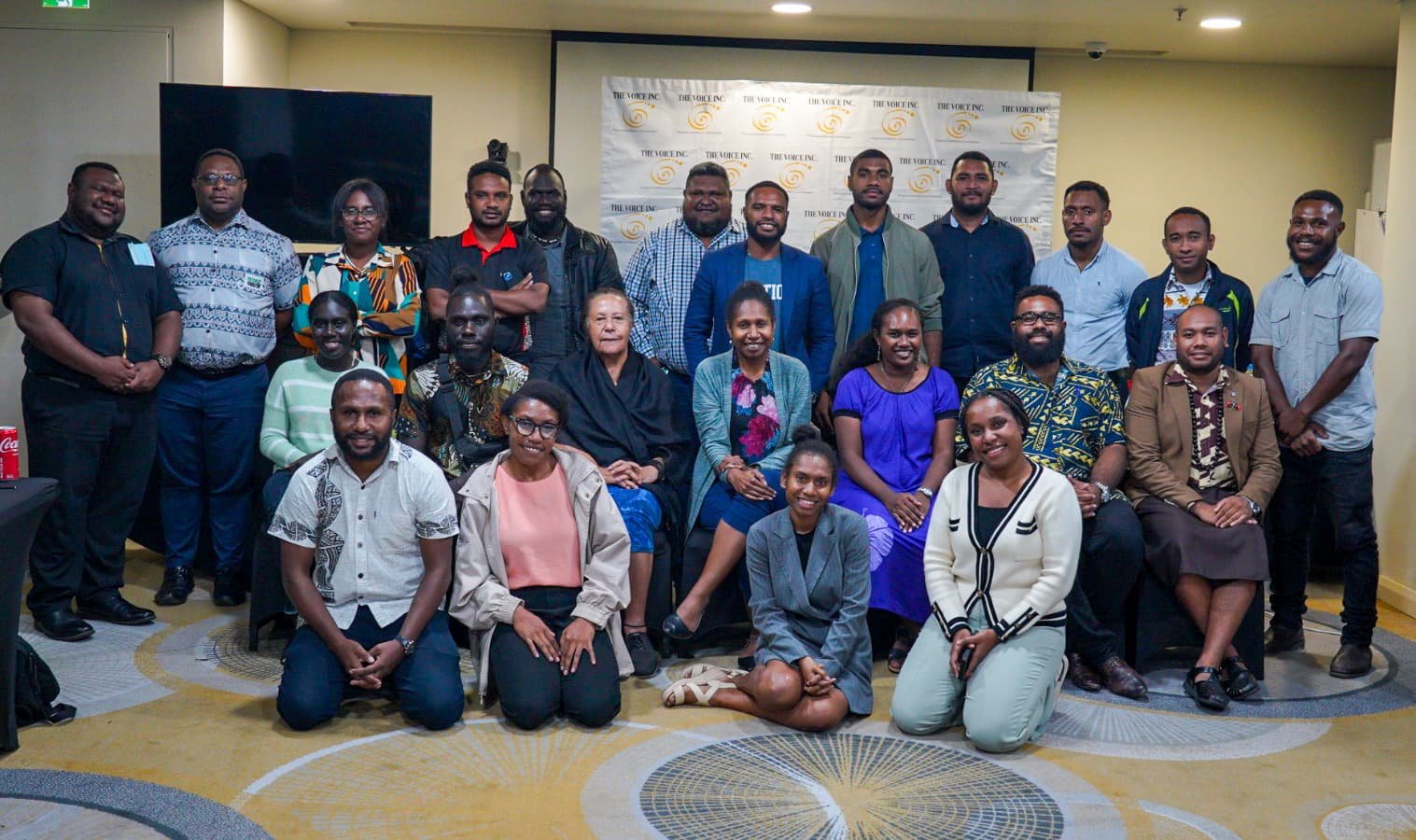BOUGAINVILLE, INDEPENDENCE AND THE FUTURE OF PNG: YOUTH REFLECTIONS AT A CROSSROADS
Participants of TVI’s second PNG 50 Years Dialogue on Bougainville
The story of Bougainville has and continues to define Papua New Guinea’s (PNG) formation as a nation state. In 1975 Bougainville declared independence prior to PNG, but was quickly absorbed into a new PNG, firmly influencing how decentralised power was included in the constitution and DNA of the PNG state.
The desire for independence continued and ignited again in 1988, sparked by the Panguna mine. Panguna was one of the richest copper and gold mines in the world, but Bougainvillians experienced enviornmental destruction and mine wealth flowing to the PNG government and foreign investors. The resulting 10 year conflict, which became known as the Bougainville Crisis, became one of the deadliest conflicts in the Pacific with 10,000 to 15,000 Bougainvillean deaths from combat and disease exacerbated by PNG’s economic blockade of the island.
In early 1997, PNG’s government, under Sir Julius Chan, secretly hired Sandline International, a private mercenary company, to eliminate the Bougainville Revolutionary Army and retake Bougainville. The deal was worth US$36 million, but it was negotiated in secret, without public or parliamentary approval.
The then head of the PNG Defence Force, Jerry Singarok rejected the government direction and deported the Sandline mercenaries, averting the massacre of Bougainvillians and calling for the Prime Minister’s (PM) resignation. Supported by mass civil society protests, the PM stepped down. In 2001, PNG and Bougainville leaders signed the Bougainville Peace Agreement, ending the war and establishing a peaceful path forward that included a vote on independence.
In 2019 the vote happened and 97.7% of Bougainvillians voted for independence. Not as a sudden political decision, but as the culmination of historical trauma, colonization, conflict, and marginalization.
In April of 2025, The Voice Inc hosted its second intergenerational dialogue in PNG’s 50th year of independence. The gathering included the TVI network of alumni & young people and was led by senior stateswoman and TVI Board chair Dame Meg Taylor. The dialogue asked for the youth perspective on Bougainville’s post referendum process, surfacing learning to inform PNG’s own ongoing journey of independence. Four themes emerged;
Independence and unity
“Independence is deeply emotive and restorative—a collective reclaiming of dignity, memory, and agency by a people who feel consistently unheard” - Dialogue Participant
Bougainville differs from other provinces seeking autonomy, its plight is deeper than economic independence and a decentralization of power. What happened in Bougainville should have never escalated the way it did, into a civil war where Papua New Guineans were killed at the hands of one another. Yet conversations on independence are still sensitive. Some young people fear what Bougainville’s independence means for Papua New Guinea? Will current rumblings lead to more provinces pushing for greater autonomy and independence?
Young Papua New Guineans, especially now, have a responsibility to support the will of the people of Bougainville, but can also continue to champion unity within Papua New Guinea as a whole. Bougainville’s road to independence will not be the end of PNG as a state, and a Melanesian solution can be developed to progress the PNG and Bougainville relationship.
Gaps in Education & Historical Erasure
How can we make informed choices if our past is hidden?
A recurring concern was the deliberate silence or erasure of Bougainville’s crisis from PNG’s education system, which has left young people across the country uninformed. For an event that has had such a drastic impact on the country, there is little about Bougainville in the PNG history curriculum. Most learnt about the Bougainville conflict through their own research or during discussions around the 2019 referendum. Participants believe education must include the “devastating truths” of the crisis and emphasized reforming the national narrative to better include this story.
Economic and Governance Readiness
We need more than passion—we need preparation.
While emotionally supportive of independence, participants expressed reservations about Bougainville’s current governance capacity and economic readiness. This included acknowledging grassroots economic progress in tourism and agriculture but stressing the urgent need for skilled workforce development and educational reform.
Other asked; ‘how well has Papua New Guinea prepared Bougainville for independence?’ What does the peace agreement specify in terms of PNG’s obligations to Bougainville in the lead up to independence? It should be a priority for PNG to ensure that Bougainville is economically ready and has the roads, schools and hospitals to succeed.
However other participants highlighted the resilience of the Bougainville people as key to their readiness. And that they will become ready as they take the responsibility of self-governance, just as the young people who created the PNG state did 50 years ago.
How will the model work?
Melanesian solutions, not imported blueprints.
Many young people reject binary models; independence vs. status quo, advocating for creative sovereignty arrangements tailored to Melanesian values and realities.
Participants pointed to unique relationships like Cook Islands-New Zealand but warning: "Independence isn’t a finish line; it’s a starting point for new relationships” - Dialogue Participant
Concerns about citizenship and the Bougainville diaspora were also raised. Many young Bougainvilleans have grown up outside of Bougainville. There are also many citizens who are part Bougainvillian. What are the implications on citizenship and free movement?
Bougainville as a Mirror, PNG at a Crossroads
Bougainville’s referendum is not just about one region, it is a national mirror reflecting deep questions about identity, unity, justice, and the future of governance in PNG. Youth voices offer clarity; they seek truth, readiness, visibility, and practical pathways to sovereignty, as a new nation and through a transformed relationship within PNG.
As PNG approaches its 50th independence anniversary, these reflections could shape a renewed national vision, not of forced sameness, but of shared destiny through diverse paths to dignity.
(In the lead up to PNG’s 50th Anniversary, The Voice Inc is hosting a series of intergenerational dialogues on nation building including senior statespeople, leaders and young people).


